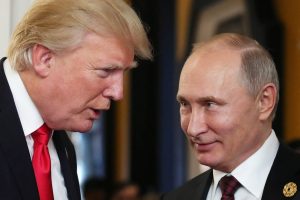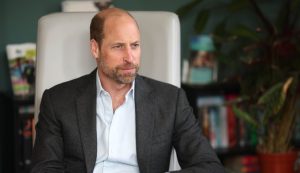Lawyer Monthly last had the opportunity to talk with Romain in 2021, where he spoke on the effectiveness and impact of pandemic regulations. As the geopolitical landscape shifts further with changing public health measures and the ongoing Russia-Ukraine war, creating new risks for businesses and governments to face, he has once again given us an exclusive interview to discuss the challenges ahead.
The COVID-19 Pandemic
When we last spoke with you in April 2021, we discussed governments’ COVID-19 response measures. As the current health crisis is slowly receding, what plans have you seen the international community adopting to handle future pandemics?
To reiterate from our past conversation, world governments have all taken drastic measures which had hitherto been unprecedented, not only to contain pandemic but also to support the economy. For the first time in the history of the modern world, public debt and the convergence criteria were no longer a variable in the equation that had to be taken into consideration. The dogma of the public deficit has been temporarily set aside, sacrificed on the altar of protecting populations.
In a sort of general alignment, governments have succeeded in overcoming tension or enmity to succeed in conducting a policy of general interest. It was quite fascinating to witness this near unison. It must be kept in mind that with the pandemic being global, no one could afford the luxury of placing political or diplomatic ideology ahead of public health. In France alone, the COVID debt is more than €600 billion. Colossal.
I have just returned from Mauritius where our Group has opened a strategic centre supervising our interventions on the African continent. The local population salutes the decision-making of Prime Minister Pravind Jugnauth, his responsiveness and the ties he has been able to strengthen with friendly countries for the purpose of serving the local population. His attitude made it possible to convince even part of the population among whom the protest was mounting after the legislative elections of 2019.
However, the fear of reviving a global COVID wave as we experienced at the beginning of the pandemic is leading some governments to take measures that can be described as excessive. I am thinking in particular of the preventive confinement of part of the Chinese province or the isolation measures taken by the state of Hong Kong where families are sometimes separated in prefabs. It is to be feared that the sacrifice of the public deficit on the altar of health preservation risks mutating into a sacrifice of individual freedoms on that of prevention.
To bring it down to a smaller scale, what should individual (large) businesses be focusing on as we emerge from the pandemic? Having witnessed one global ‘black swan event’, how would you advise senior management to safeguard their assets in preparation for another?
It is important to remember what the “black swan” theory is. The black swan theory, developed by statistician Nassim Taleb, notably in his essay ‘The Black Swan: The Power of the Unpredictable’, is a theory according to which a black swan is a certain unpredictable event that has a low probability of occurring and which, if it occurs, has far-reaching and exceptional consequences. Taleb describes the black swan problem as "escaping the use of degenerate metaprobabilities".
The dogma of the public deficit has been temporarily set aside, sacrificed on the altar of protecting populations.
The importance of the metaphor is that it constitutes an analogy showing the fragility of systems of thought. A set of conclusions is potentially refuted as soon as one of its fundamental postulates is disproven. In this case, the sighting of a single black swan could disprove the logic of a system of thought, as well as any reasoning that followed the same underlying logic.
This is exactly what happened with the COVID-19 pandemic and, to another extent, with the war in Ukraine. In the first case, this was because no one had included such a scenario in their economic planning for a single moment, and therefore this unpredictability of the event – coupled with its utterly unknown duration and consequences – totally paralysed and then turned the world economy upside down. The choice of increased outsourcing decided by many business leaders, strongly developed in recent years, led to the fact that, when strict confinements became generalised and freight and logistics problems appeared, production chains complete were shut down and then, when they restarted very slowly, continued to be disrupted for many months.
In the second case, it is the international response and its economic and political consequences, particularly in terms of sanctions, which had been underestimated or little considered. The conclusion is clear; risk management is the assessment of a situation or strategic planning which must be fully appreciated by broadening the spectrum of “reasonably possible”. Alternative plans – at least two – must always be associated as part of governance planning.
Previously, you mentioned that the pandemic may have irreversibly altered the way we see asset security and human resources management. How far has this been borne out in your observations since then? Are there other ‘new normals’ that you have encountered?
It is obvious, and it has been confirmed. Take a look today at the strongly encouraged notion of teleworking, which has even become mandatory in some cases. Such a measure before the pandemic would simply have been unthinkable. There has never been so much co-working space development. Many office floors no longer find takers, and market prices have changed post-pandemic. With a drop in France of 42% in investments and 45% in leases, under the shock of the global pandemic, 2020 was the worst year for the tertiary real estate sector in twenty years.
If the office is not dead, the coming months will be synonymous with the rationalisation of surfaces. During each crisis, the primary reflex is to revisit the issue of the real estate footprint, the second cost item for businesses. Today, new workspaces are emerging which aim to improve the daily lives of employees required to officiate face-to-face. Many real estate groups now offer annexes – satellite structures of reduced size – hosting a company in a privileged setting a short distance from the places of residence of employees, accessible 7 days a week according to needs.
During each crisis, the primary reflex is to revisit the issue of the real estate footprint, the second cost item for businesses.
Flexibility seems to have become audible again for everyone. The “usual place of work” within the meaning of labour law, which was a more than essential concept, will end up becoming quite relative. The autonomy of employees is increasingly extended. More than 72% of weekly meetings are now held in dematerialised format, no longer because the pandemic risk requires it, but because, ultimately, it has become part of our habits. This has also prompted digital majors to develop new dematerialised meeting platforms with new features and numerous refinements.
The Russian Invasion of Ukraine
In the aftermath of the Russian invasion of Ukraine, the Financial Times estimated global trade as having fallen 2.8%. How far does this qualify as a ‘black swan event’ for the international economy?
This ties in perfectly with what I mentioned earlier. The international response in the aftermath of the Russo-Ukrainian conflict, its uniqueness in decision-making by the international community and the speed that followed had undoubtedly been completely underestimated. However, the resulting consequences are obviously eminently harmful due to the increased globalisation that governs international economic relations today. The ban on access to the SWIFT network – even if it spared the banking institutions on which international trade is more dependent – has put a sharp and brutal brake on global economic flows.
In addition to the United States, it should be remembered that the sanctions taken by the European Union in financial and commercial matters have been strong: limitation of access to the primary and secondary capital markets of the EU for certain Russian banks and companies, a ban on transactions with the Russian Central Bank and the Central Bank of Belarus, a ban on supplying banknotes denominated in euros to Russia and Belarus, prohibition of any public financing or investment in Russia and even prohibition of investing in projects co-financed by the Russian Direct Investment Fund and of contributing to them. The European Union has also banned coal imports from Russia, exports of goods and technologies in the oil refining sector to Russia and new investments in the Russian energy sector.
The impact on global transport and cargo has also been particularly significant, with the closure of EU airspace to all Russian-owned and Russian-registered aircraft, the closure of EU ports to shipping companies, the ban on Russian and Belarusian road hauliers from entering EU territory and the ban on exports to Russia of goods and technologies in the aviation, maritime and space sectors. Russia's responsive sanctions obviously had a particularly big impact as well. It is the whole of world trade that has been impacted.
Though there has been a mass departure of multinational businesses from Russia, several – accounting for as many as 188,000 Russian employees – are continuing their operations. What would your advice be to companies uncertain about the consequences of a move away from Russia?
It is always extremely complex to weigh the pros and cons of leaving a country, even for good ideological reasons. First, because the economic reason, a fortiori in the case of an entity of tens of thousands of employees, requires reasoning as a captain of industry, and not as a philanthropist or a conscientious objector. To blame entities, decried for not having ceased their activities in Russia, is to establish an unhealthy connection with any political endorsement of the decisions taken by the authorities.
It is always extremely complex to weigh the pros and cons of leaving a country, even for good ideological reasons.
First there are the consequences for the overall balance of a group, which can be dangerously endangered when a single branch generates a high ratio of total turnover in Russia, which can push to carefully assess this type of decision.
Next, it should be remembered that the first companies that were led to withdraw from Russia – and which communicated widely about it – were those that did not generate significant turnover there, which was therefore more of a PR opportunity than a real economic sacrifice. Many of those who finally decided to withdraw from Russia did not do so by choice but quite simply because, faced with serious supply problems due to the sanctions, they could not do otherwise. This was the case, for example, of Decathlon which, unable to find alternative suppliers in China or Russia, resolved to temporarily cease its activity.
Philippa Foot's tramway dilemma takes on its full meaning here. Take the risk of staying and being portrayed as a financier of an abject war by paying a tax to the Putinist state, or leaving and taking the risk of being nationalised and losing millions of euros in investments that will eventually be recovered by this same state. Another question then arises: in terms of economic stakes, what would benefit the Russian state the most?
Moreover, to speak of a “mass departure” is quite popular. L'Oréal, for example, has announced the closure of its 40 stores, but has kept its production plant in Vorsino. Renault has still not withdrawn from the shareholding of the Avtovaz Company – the Russian manufacturer of the LADA brand – of which it owns 68% alongside the Russian state’s 32%, and Accor has not abandoned its portfolio of 56 hotels on Russian territory.
The choice must obviously be dictated by one's conscience, but we must measure the chance such a departure within the framework has of benefiting the Ukrainian cause against the consequences in economic and social matters, particularly in terms of jobs destroyed, that such a decision may induce.
What should businesses and governments take away from this event in terms of operational resilience?
If addiction is the mother of all evil, autonomy is the key to freedom. The European doctrine in force for decades was to strengthen its economic ties with Russia in order to obtain security and stability in relations. It is clear that the result is strictly not up to par, but more importantly, such a strategy generated a real energy dependence. In the same way that too much outsourcing induces dependence on subcontractors – as we have already mentioned in relation to the COVID pandemic – which in the event of a crisis and unexpected event impacts the entire chain of production, an energy dependence with a third state, even if it were a friend for a day, can have dramatic consequences in the event of a diplomatic reversal.
[ymal]
Know how to produce in-house and not depend on anyone. This is the obvious, quasi-survivalist asset that governments and businesses alike need to keep in mind. And what you cannot produce, or what you have to buy if you stick to absolute advantage theory, you have to get from enough different people so that in a crisis, you can always keep an alternative solution.
About Romain Gerardin-Fresse
Following our last interview with you, you said that you had ambitions to expand the presence of GFK Conseils-Juridis in Africa and Asia. Can you share any news on this front?
As far as Asia is concerned, we opened a branch in Singapore last year, which allows us to reach out to all the Asian territories that we had identified. In Africa, we have just opened an operational base in Mauritius, from which we operate throughout Africa, whether in the context of the internationalised growth of our private clients or the public policies of our institutional clients.
2022 should be a particularly interesting year, culturally and structurally.
Do you have further plans for the remainder of this year and beyond?
Advanced discussions with tactical, legal and managerial groups in the Emirates will allow us to conquer new market shares in a territory in which we have already been well established for years. The United Arab Emirates, as I told you earlier, have developed a particularly intelligent and attractive policy for welcoming start-ups.
In addition, because we act as a strategic advisor for many tech organisations, the new task force that we are developing around this area is certain to become an essential operational tool for them.
If you had to name one of your career accomplishments that you are particularly proud of having achieved, which would it be?
There are a number of achievements of which I am proud, but on which I cannot speak publicly. However, one of my greatest prides is to have succeeded in creating a firm which, each year, manages to come to the aid of the most disadvantaged by the financing of public utility programs in Africa and in Sri Lanka by setting aside part of our profits. The tactical support that we provide our customers on a daily basis through this measure is supplemented by vital operational support to the disadvantaged, which meets basic needs where public policies meet their limits. This dimension is even more important in the current economic context.
We also organised a great charity evening on 25 March, during which an artwork auction took place. The proceeds from the sales, initially planned to build a school building in Sri Lanka, will make it possible to release emergency health and food aid for the country, which is suffering greatly from global tensions.
Romain founded GFK Conseils-Juridis in 2017. Today, the firm is present in Europe, the Middle East, the United States and Asia. Specialising in the definition of strategies, Romain has a strong reputation in the resolution of technically complex cases, from mergers and acquisitions to restructurings, through the drafting of laws that contribute to legislative and constitutional changes.




















